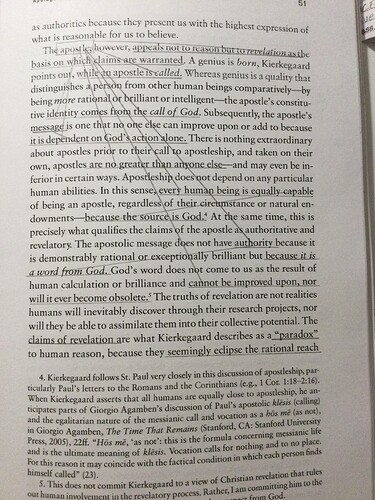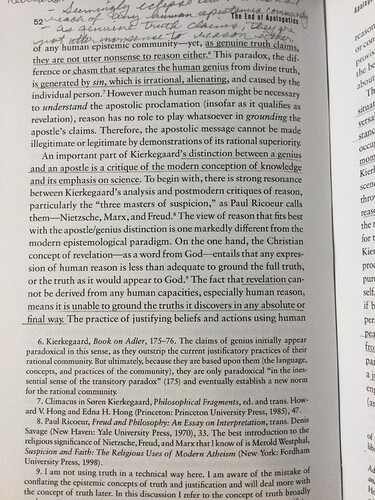Last Edited: 09/28/2022
This was an experimental book discussion group that took place during the summer of 2022. We discussed Myron Penner’s book “The End of Apologetics: Christian Witness in a Postmodern Context.” See below for the blurb.
We attempted to read and discuss on a schedule in order to stay on track and finish the book. We attempted to have read and then BEGUN discussion of each section by the date indicated. [The original schedule is no longer needed and has been removed in order to leave a more workable Table of Contents for this thread.]
Table of Contents
Introduction: Slide 34
Chapter 1: Slide 193
Chapter 2: Slide 274
Chapter 3: Slide 391
Chapter 4: Slide 449
Chapter 5 & Epilogue: Slide 521
Chapter 6: The One We Write: the Continuing Discussion of The End of Apologetics Slide 778
Resources: Slide 9
The book is available to read online for free at: The End of Apologetics: Christian Witness in a Postmodern Context by Myron Bradley Penner, : Myron Bradley Penner : Free Download, Borrow, and Streaming : Internet Archive. Two pages are missing. You can find them at the bottom of the Resources Slide. You can also listen to the book if you click on the headset icon in the bottom right corner of Internet Archive’s browser-based reading app. The reader is inelegant and reads all the foot notes, but is still of use.
The book is available through your favorite book sellers and libraries. The only ebook version I could find was the Kindle version. You can read about it and take a look inside at: https://www.amazon.com/End-Apologetics-Christian-Witness-Postmodern/dp/0801035988 .
As participants mention resources which can provide background information on the main concepts in the book or which can lead to further research later, I will continue to add them to Slide 9. You may wish to bookmark Slide 9 for easy access, since notifications are not sent out for edits.
This will not be a quick, easy read for everyone. (It certainly is not for me.) However, it is a fairly readable, and fair, introduction to some ideas and concepts relating to Premodern, Modern and Postmodern thinking. If you want to know more about Postmodernism, this is a very good, albeit “side door,” orientation to some aspects of the condition and critical thought associated with it.
Blurb from Amazon:
The modern apologetic enterprise, according to Myron Penner, is no longer valid. It tends toward an unbiblical and unchristian form of Christian witness and does not have the ability to attest truthfully to Christ in our postmodern context. In fact, Christians need an entirely new way of conceiving the apologetic task.
This provocative text critiques modern apologetic efforts and offers a concept of faithful Christian witness that is characterized by love and grounded in God’s revelation. Penner seeks to reorient the discussion of Christian belief, change a well-entrenched vocabulary that no longer works, and contextualize the enterprise of apologetics for a postmodern generation.


